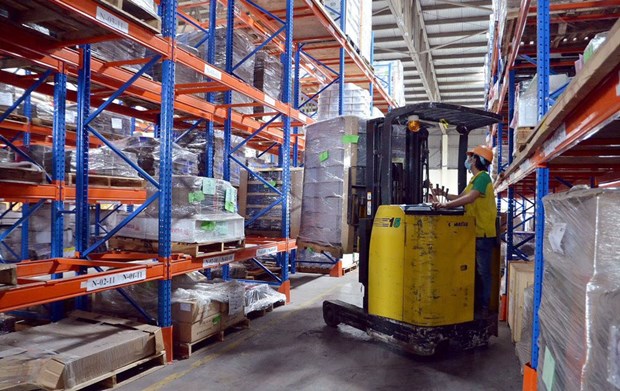Measures needed to remove barriers in trans-border e-commerce
Removing barriers hindering trans-border e-commerce activities is a current concern of many ministries, sectors and businesses, in the context that despite their advantages in export, Vietnamese firms engaging in the activities have still faced many difficulties.
Removing barriers hindering trans-border e-commerce activities is a current concern of many ministries, sectors and businesses, in the context that despite their advantages in export, Vietnamese firms engaging in the activities have still faced many difficulties.
Trans-border e-commerce has made great contributions to Vietnam’s export revenue, with a value of over 80 trillion VND (3.28 billion USD) in 2022.
According to Amazon, in 12 months until August 31, Vietnamese firms had sold 17 million product units to customers around the world through this platform. Notably, the number of Vietnamese partners of Amazon rose 40%, while their export value increased 50%.
Meanwhile, the e-commerce platform Alibaba.com reported that in the first nine months of 2023, trans-border e-commerce trade value that Vietnamese small and medium-sized enterprises expanded 47% year on year.
Hoang Thi Thanh Tam, Director of Indochina Creative Investment and Development JSC which has sold its products via Alibaba.com since September 2015, said that e-commerce has enabled the firm to reach customers around the world in a fast manner.
Marketing Director of Alibaba.com Vietnam Nguyen Thi Phuong Uyen said that many Vietnamese enterprises have yet to take advantages of this effective export channel due to barriers in language, a lack of marketing skills and those to use marketing tools in e-commerce platforms as well as understanding on digital trade regulations. In addition, logistics is also one of the difficulties for Vietnamese exporters, she said.
Tam said that in reality, businesses also countered difficulties related to payment and information safety, as well as regulations in green, sustainable and low-carbon production.
Vietnamese e-commerce market has been rated among the top three in the Southeast Asian region with an online export revenue predicted to reach nearly 300 trillion in 2027. Experts held that removing current barriers to promote the country’s advantages in the field is an urgent mater for Vietnam.
Vice Director of the Information Technology Application and Digital Transformation Centre under the Ministry of Industry and Trade (MoIT)’s Trade Promotion Agency Nguyen Thanh Duong said that the MoIT has organised various activities to support domestic firms, especially small- and medium-sized enterprises to connect with e-commerce platforms such as Alibaba.com, TikTok, Amazon.com, Lazada, Tiki, Foodmap, Postmart, Voso, Shopee, and Sendo.
Particularly, the Vietnam Pavilion is scheduled to be launched in Alibaba.com in December with the participation of more than 100 businesses, he said.
Uyen said Alibaba.com will continue to coordinate with Vietnamese ministries and sectors to promote trade in more than 200 countries. Meanwhile, Amazon Global Selling Vietnam has also pledged to help strengthen the connectivity between sellers and manufacturers in many sectors to expand the Vietnamese product portfolio, while increasing training for Vietnamese sellers and supporting them in building and developing global trademarks.
In the coming time, the MoIT and e-commerce platforms will develop and perfect the digital trade promotion ecosystem, diversify coordination with domestic and foreign e-commerce platforms, and continue to cooperate in training and improve online export capacity for domestic businesses.
At the same time, trade experts advised businesses to actively apply digital technologies, enhance their export capacity and trans-border selling skills, while developing their products and building their own trademarks to win customers’ confidence, thus promoting trans-border e-commerce activities in a sustainable manner./.










